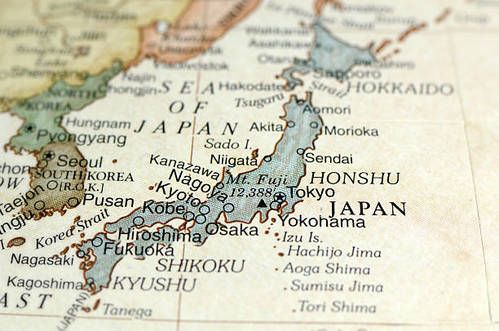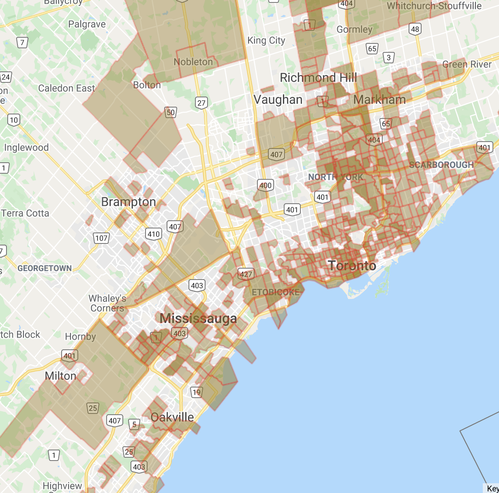Quick Facts

- Place of Origin: Japan
- Religions: Many Japanese people practice both Shintoism and Buddhism; they can either identify with both religions or describe themselves as non-religious or spiritual. The level of participation in religious ceremonies as a cultural tradition remains high, especially during festivals and occasions such as the first shrine visit of the New Year. Taoism and Confucianism from China have also influenced Japanese beliefs and customs. Japan is sometimes classified as a Buddhist nation but it is increasingly post-religious.
- Population: 125,360,000 (2021 estimate)
- Language: Japanese; English instruction was made mandatory in Japanese elementary schools in 2020
- Other Information: About 30,000 Japanese people commit suicide every year, including more in their 20s than in any other country.

When did Japanese Buddhists first come to Canada?
The first wave of Japanese immigrants started coming to Canada between 1877-1928, with a second wave arriving after 1967 when immigration laws changed.
First generation Japanese immigrants are called “Issei" in the Japanese language.
Due to a long history of discrimination and increased prejudice during World War II, Japanese Canadians were either deported or dispersed across the GTA in the 1940s. As a result, Japanese Buddhists are scattered across Canada and the GTA. As of 2016, it was reported that 121,485 people of Japanese origin are in Canada, which makes up 0.35% of the Canadian population.
First generation Japanese immigrants are called “Issei" in the Japanese language.
Due to a long history of discrimination and increased prejudice during World War II, Japanese Canadians were either deported or dispersed across the GTA in the 1940s. As a result, Japanese Buddhists are scattered across Canada and the GTA. As of 2016, it was reported that 121,485 people of Japanese origin are in Canada, which makes up 0.35% of the Canadian population.
Where do Japanese Buddhists/Shintoists predominantly gather in the Greater Toronto Area (GTA)?
The largest concentration is mostly in Willowdale East (north of Sheppard, south of Finch, east of Yonge and west of Bayview). About 660 families and/or individuals live there. One GTA educational institution regularly hosts a new group of Japanese students who come to the area for an English-language immersion experience lasting three months. In 2019, Canada welcomed more than 400,000 new international students, including many Japanese ones in the GTA.
Population estimate in the GTA: 17,000 (as of early 2021); 41,645 across Ontario
Population estimate in the GTA: 17,000 (as of early 2021); 41,645 across Ontario


What are Japanese Buddhists' lives like?



- Japanese immigrants are well established within the GTA with their own cultural associations, social clubs, foundations, utility stores, services, and TV channels.
- Japanese Canadian Cultural Centre hosts the Toronto Japanese Film Festival, an event showcasing Japanese films.
- With the increasing popularity of Japanese brands such as Muji and Uniqlo, Toronto is quickly establishing itself as a “Little Tokyo” or “Japan Town”.
- First generation immigrants in the GTA are largely fluent in Japanese and second generation immigrants often speak Japanese fused with English.
- Japanese art, cuisine, and culture is well established in the GTA.
What do Japanese Buddhists believe?

- Japanese Buddhism, or Zen Buddhism, is derived from Mahayana Buddhism, which is one of three main schools of Buddhism.
- Japanese Buddhists believe in the “Four Noble Truths,” which are the following:
- Life is full of suffering.
- Suffering arises from ignorance and desire.
- Suffering can only cease by ending ignorance and desire.
- To end ignorance and desire is through the “Middle way” or “Noble Eightfold path”.

PRAY
for Japanese Buddhists in the GTA
- Pray that the Holy Spirit will feed their spiritual hunger and seek dependence on a loving God.
- Ask for those who are living under pressure for their faith will stand firm and mature.
- Pray boldness for Japanese followers of Jesus in the GTA to share the gospel with other Japanese
- Ask God to open the hearts of unreached Japanese communities to believe the good news and follow Jesus in obedience.
Resources Available
Urban Reach Assisting Churches is a peoples group website that seeks to provide an accessible online portal for receiving and sharing tools, information, expertise, and resources related to engaging and embracing the diverse peoples of Canada.
Click the Ureach Toronto Logo for more resources on Japanese Buddhists.
Click the Ureach Toronto Logo for more resources on Japanese Buddhists.
Prayercast is a website dedicated to activating prayer around the world.
For prayer resources on Japanese peoples, click the Prayercast logo.
For prayer resources on Japanese peoples, click the Prayercast logo.



